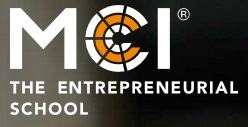Master of Arts in Business (MA) – International Health & Social Management – Management Center Innsbruck
Innsbruck, Austria
Reviewed by Agentur für Qualitätssicherung und Akkreditierung Austria (AQ Austria)
- Valid from
- 14-12-2014
- Valid until
- 13-12-2019
Contact information
- Institution
- Management Center Innsbruck
- Website
- https://www.mci.edu
- Country
- Austria
Executive summary
The study programme International Health & Social Management (IHSM) , was assessed by Agency for Quality Assurance and Accreditation Austria (AQ Austria) and this assessment procedure took place within the framework of the Certificate for Quality in Internationalisation project (CeQuint). AQ Austria convened an assessment panel, which studied the self-assessment report and undertook a site visit in Innsbruck from 24th to 25th April 2014. The assessment panel took ample notice of the active involvement in and relationship of IHSM with the Joint Programme European Master in Health Economics & Management (EU-HEM) including double degree partnerships and as of the year 2014-2015 to become a Joint Degree Programme. The panel in its assessment has taken into account the high relevance of the EU-HEM cooperation as an essential component of the internationalisation of the IHSM programme, and recommends it as an exemplary practice. The assessment itself though is only addressing the internationalisation of IHSM.
Standard 1: Intended Internationalisation
The panel found that there is an implicit and supported policy of intended internationalisation but that there is a lack of an explicit short term and long term strategy defining the why, how, what and outcomes of the internationalisation of the IHSM programme. The panel deems the underlying criteria of this standard to be met satisfactorily. The panel therefore assesses Standard 1. Intended internationalisation as satisfactory.
Standard 2: International and Intercultural Learning
The panel found that the IHSM programme has a genuine although not always very explicit focus on the achievement of international / intercultural learning outcomes by its students. The panel deems all the underlying criteria of this standard to be met and is particularly positive about the balanced and thought-through mix of methods used for the assessment of students’ international / intercultural learning outcomes. More work should however be invested by the programme in describing these international / intercultural learning outcomes in a more explicit way and directly linked to goals of the programme regarding internationalisation. Also including relevant stakeholders more systematically in proving the graduates’ achievements is recommended. The panel assesses Standard 2. International and intercultural learning as satisfactory.
Standard 3: Teaching and Learning
The panel found that the Teaching and Learning of the IHSM programme is good. The panel deems all the underlying criteria of this standard to be met and in the case of criterion 3c (3c. Learning environment) even systematically surpassed. The Joint Programme EU-HEM can be regarded as an international example. The panel is convinced that the way the EU-HEM programme has been developed and how a new stage of joint degree has emerged can be regarded as an exemplary practice. The panel therefore assesses Standard 3: Teaching and Learning as good.
Standard 4: Staff
The panel considers the underlying criteria of this standard to be met. The international recruiting of the teaching staff and the strong coordination of the programme and curriculum, as well as the teaching cooperation with the partner universities can be regarded as an international example. Similarly, the panel found the aspects intercultural teambuilding and support by the staff very good. The panel recommends to structure and to document the way of how to proceed from here. The panel therefore assesses Standard 4: Staff as good.
Standard 5: Students
The panel found that students are provided with a variety of international and intercultural experiences and are well supported during the duration of their studies. The panel deems all the underlying criteria of this standard to be met and often surpassed. The student composition in particular can be regarded as an international example because of the continuous efforts made by MCI to include and mix students, which has actively contributed to a positive student learning experience. The relationship with the partners in the EU-HEM programme strengthens this dimension even more. The panel is convinced that these aspects can be regarded as an exemplary practice. The panel recommends including more opportunities for student mobility and international site-visits in the full IHSM programme and not only the EU-HEM programme and increasing efforts to support the programme’s international goals and its students. The panel therefore assesses Standard 5: Students as good.
Overall conclusion
Based on documented internationalisation goals, the IHSM programme has implemented effective internationalisation activities, which demonstrably contribute to the quality of teaching and learning.
Nevertheless, the panel recommends that the IHSM programme develops a more explicit internationalisation strategy on the why, how and what of the international dimensions of the programme, short term and long term goals and objectives, including the international focus of the IHSM programme and the role of the EU-HEM track in reaching those goals and objectives.
The panel deems the CeQuint standards met in such a way that the IHSM programme deserves the Certificate for Quality in Internationalisation.